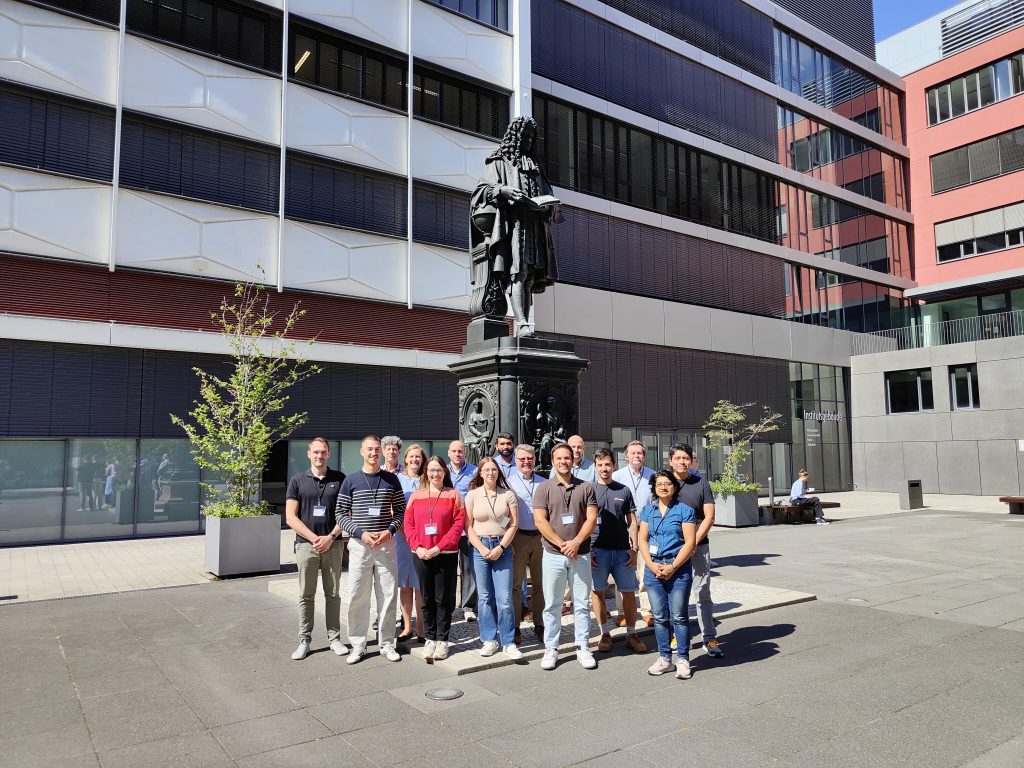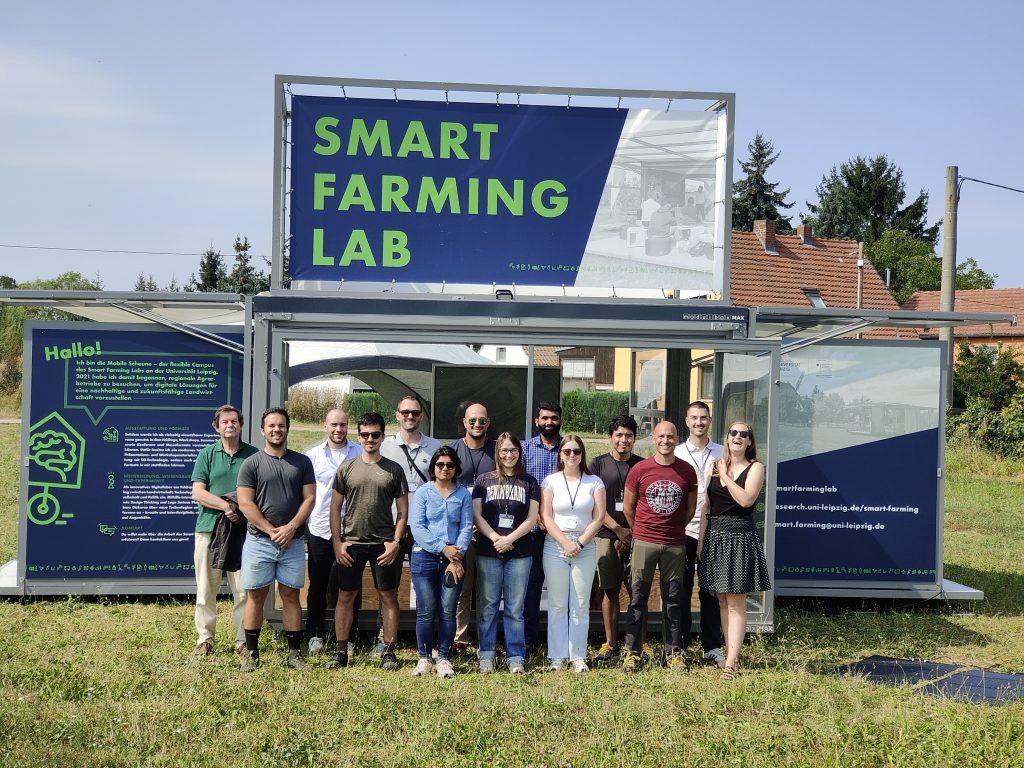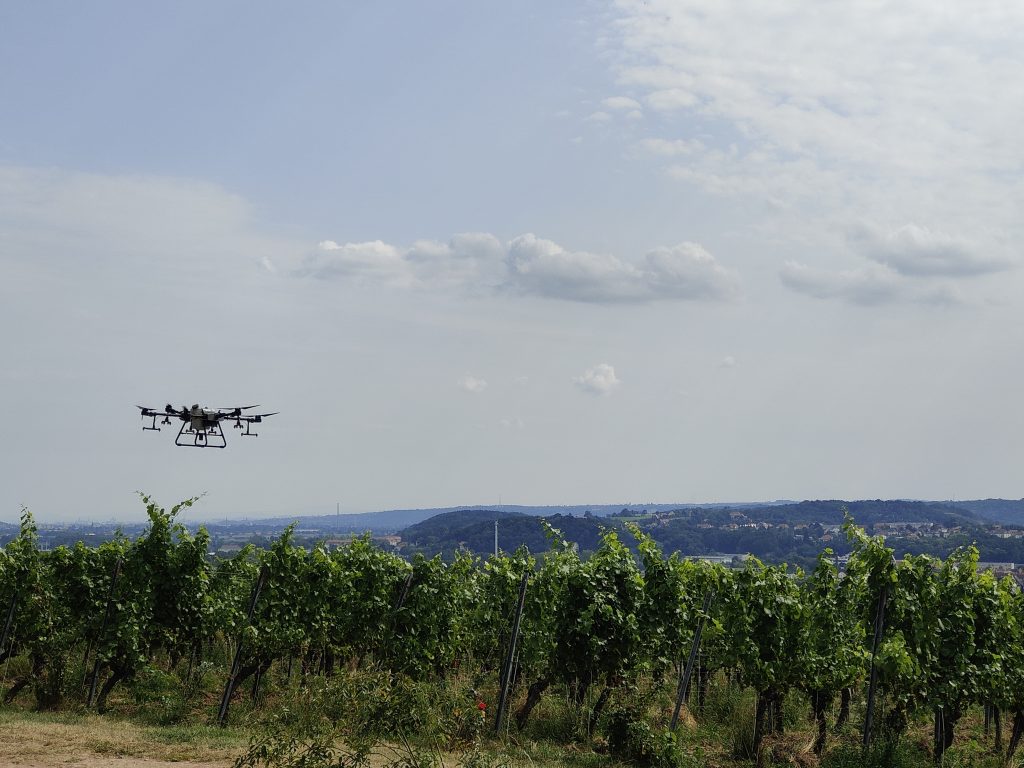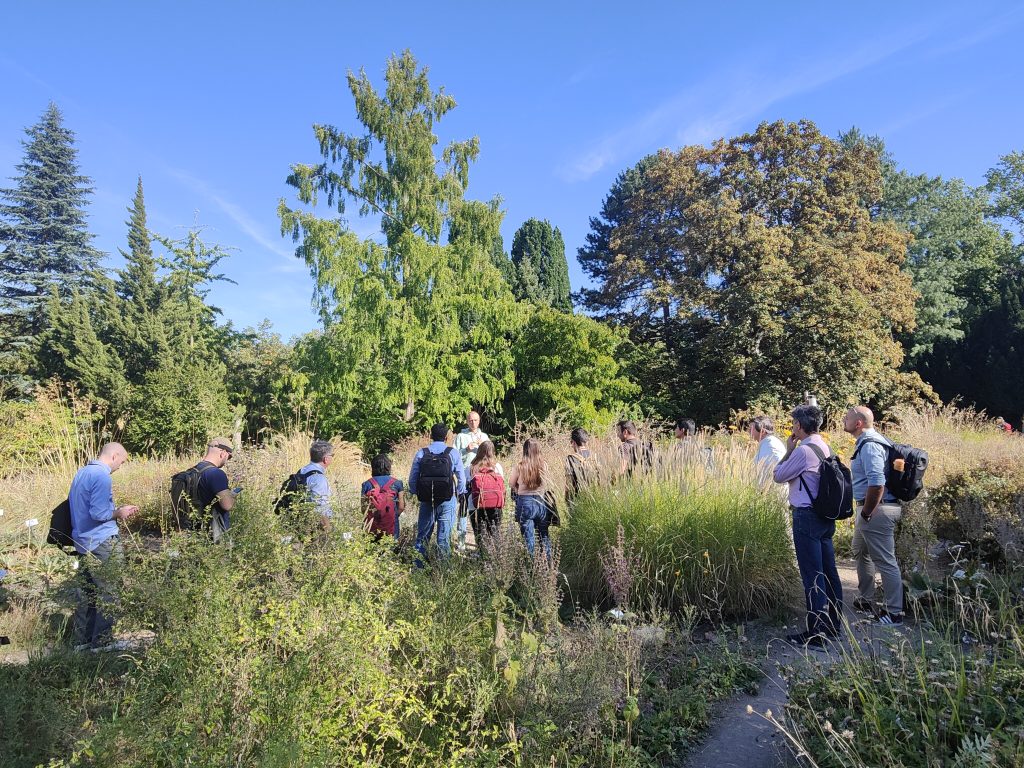Arqus Summer School “Bridging the gap – Connecting traditional and digital research approaches in agriculture” at Leipzig University
|
15 Sep 2025|
15 Sep 2025From 25 to 29 August, the Arqus Summer School “Bridging the gap – Connecting traditional and digital research approaches in agriculture” took place in Leipzig.
It all began in Conegliano, Italy, a small town in the Treviso region. Nestled amid picturesque vineyards is CIRVE, the Interdepartmental Centre for Research in Viticulture and Enology at the University of Padua. In October 2024, researchers from the Smart Farming Lab at Leipzig University visited the centre to discuss pressing challenges in viticulture and agriculture with the scientists there.
During the discussions, it soon became clear that, despite different conditions, similar problems dominate in Italy and Germany: the industry is currently facing several significant challenges that affect the entire food sector. One of the most pressing issues is climate change, which has led to rising temperatures and changing weather conditions, directly impacting yields.
In addition, the industry is struggling with an increasing shortage of skilled workers. In rural areas, it is becoming increasingly difficult to find qualified personnel. Overcoming these challenges requires creative solutions and adaptable strategies to secure the long-term future of agriculture and viticulture.
In order to address these pressing issues in greater depth, researchers from the Smart Farming Lab, together with the Universities of Padua and Maynooth and with the support of the Arqus Alliance, decided to organise an international summer school, in it, young researchers in particular were encouraged to contribute their projects and perspectives in order to bridge interdisciplinary gaps.


At the end of August, 15 young scientists and professors from five different countries gathered at Leipzig University to discuss methods and approaches for addressing acute problems in agriculture.
Various disciplines and research approaches, ranging from biology, plant physiology, meteorology, remote sensing and computer science to robotics, came together to discuss ideas and solutions for the long-term viability of the industry.
The main objective of the summer school was to promote joint learning and the exchange of experiences in the respective fields of research. The interactive programme included subject-specific seminars, workshops on collaborative work, and a visit to the Botanical Garden and the New Town Hall. The highlight of the Summer School was an excursion to Meissen to the Schloss Proschwitz winery.
For several years, this has been a practical partner for the EXPRESS experimental field coordinated by the Smart Farming Lab, which researches and tests digital solutions in collaboration with agricultural businesses in the region.
In the vineyards high above Meissen, participants gained exciting insights into methods for monitoring heat stress in plants and practical applications of drones for mapping areas or applying plant protection products.
The participants’ conclusion is unanimous: whether traditional or digital research methods are used, the current challenges in agriculture can only be met by working together.
The summer school is a first step towards European networking among doctoral students and teachers. Further interdisciplinary research projects are already in the planning stage and can thus make a pioneering contribution to sustainable agriculture in the future.

